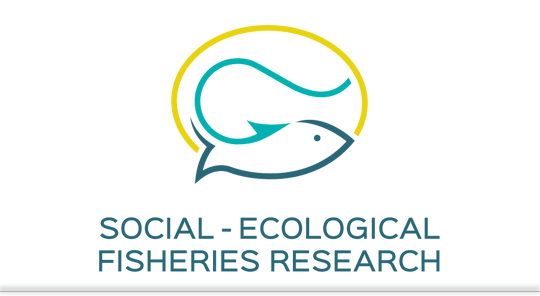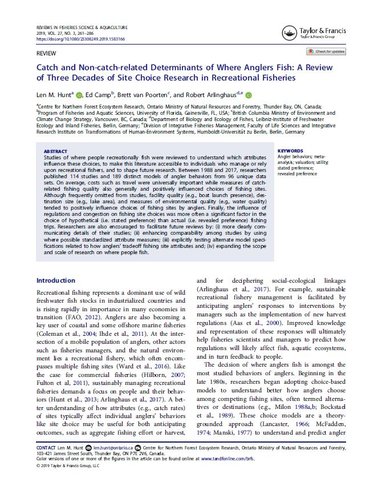Studies of where people recreationally fish were reviewed to understand which attributes influence these choices, to make this literature accessible to individuals who manage or rely upon recreational fishers, and to shape future research. Between 1988 and 2017, researchers published 114 studies and 189 distinct models of angler behaviors from 96 unique data sets. On average, costs such as travel were universally important while measures of catch-related fishing quality also generally and positively influenced choices of fishing sites. Although frequently omitted from studies, facility quality (e.g., boat launch presence), destination size (e.g., lake area), and measures of environmental quality (e.g., water quality) tended to positively influence choices of fishing sites by anglers. Finally, the influence of regulations and congestion on fishing site choices was more often a significant factor in the choice of hypothetical (i.e. stated preference) than actual (i.e. revealed preference) fishing trips. Researchers are also encouraged to facilitate future reviews by: (i) more clearly communicating details of their studies; (ii) enhancing comparability among studies by using where possible standardized attribute measures; (iii) explicitly testing alternate model specifications related to how anglers’ tradeoff fishing site attributes and; (iv) expanding the scope and scale of research on where people fish.

